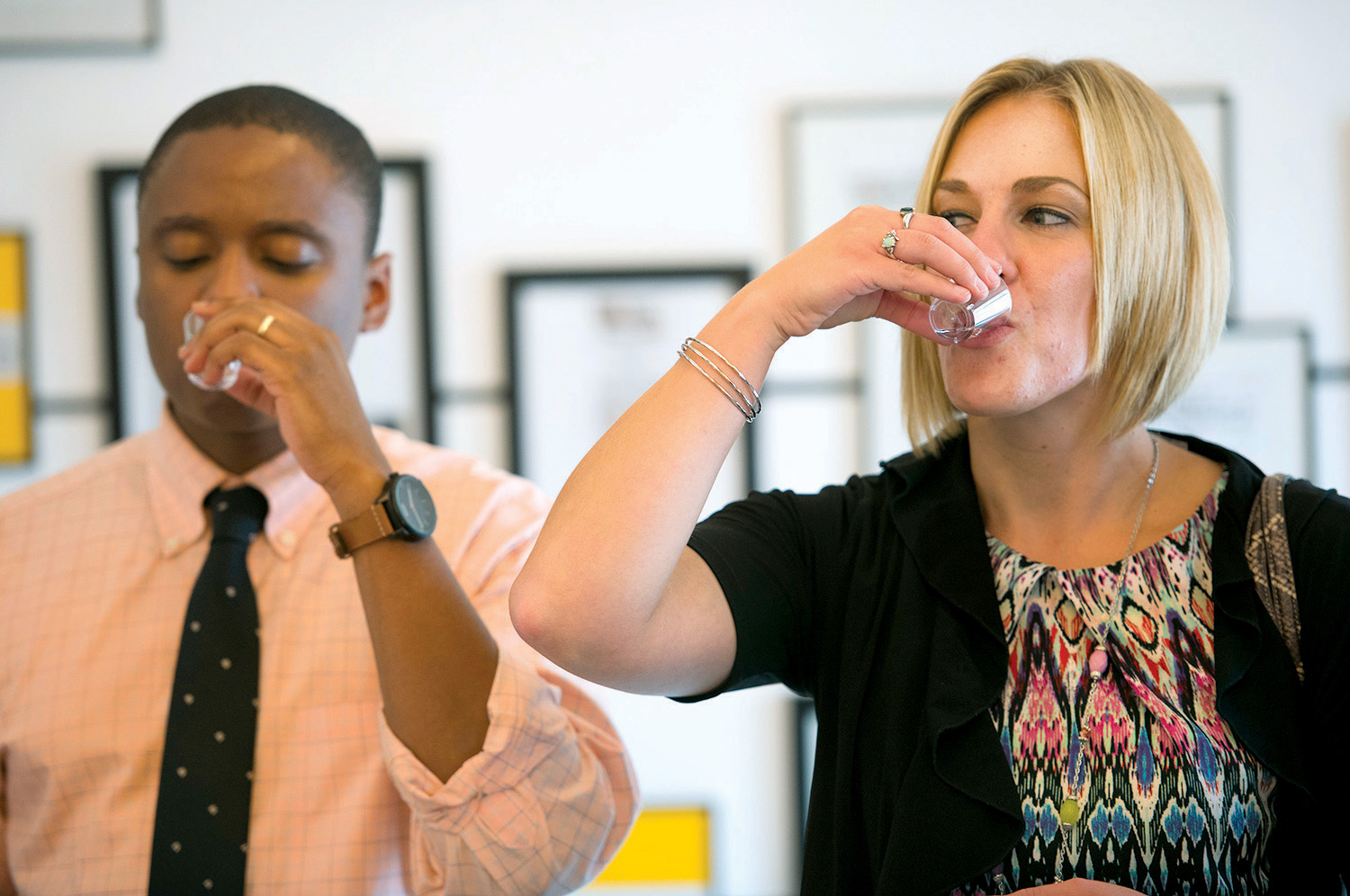On beer tours at his distillery, Kyle Pfalzer has a simple way of describing what whiskey is to novices.
“Very basically, it’s just distilled beer,” said the co-owner of Tenth Ward Distilling Company in Frederick.
But whiskies vary. There are scotches, bourbons, and whiskys. And that’s when the conversation gets a bit more intricate.
In large part, the biggest variance in different whiskeys is based on geography. Scotch, for instance, by law can only be made in Scotland. While someone in the U.S. could make what could be considered scotch—mostly made from malted barley—since it was not made in Scotland, it is technically whisky—without the “e.” To be considered scotch, the alcohol has to be aged in oak barrels for three years or more.
While most whiskey is made from barley, corn, rye or wheat, bourbon is typically made using corn. In order to be considered a bourbon, the grain mash must be at least 51 percent corn. Bourbon, by federal law, must be stored in charred, new oak containers at no more than 125 proof. It must be bottled at no less than 80 proof, and can not contain any added flavoring or coloring.
All bourbon is considered whiskey, but not all whiskey is considered bourbon.
Other whiskies must be distilled at no more than 190 proof.

Photo by Graham Cullen
Menzi Khumalo, left, and Jennifer Tyler sample a whiskey at Tenth Ward.
Locally, many of the distilleries that offer whiskey make white whiskey. For instance, Tenth Ward offers several white whiskies, including its White Caraway Rye.
MISCellaneous Distillery in Mount Airy recently released its first whiskey, called Restless Rye Whisky. It’s 100 percent rye made with all Maryland grain, and gets its name for not having rested in a barrel.
White whiskey gets its color simply from not being aged in barrels. As distilleries mature, they have more time to age their alcohol to make their whiskey darker.
Dragon Distillery in Frederick, which offers bourbon making classes, sold out of its last small-batch bourbon—Basilisk Bourbon. The distillery is set to release a new whiskey next month.
“One of the reasons we got into doing whiskey in the first place is because there are so many different ways to do a good whiskey,” said Monica Pearce, Tenth Ward co-owner. “And all whiskey is pretty much enjoyable, so there are so many people that kind of gravitate to drinking it.”

